
Lead the Change: How Pilates Studios and Training Providers Can Thrive in the New Pilates Era
The Pilates industry is entering a transformative phase, with the new National Coaching Register reshaping standards for instructors, studios, and training providers. This article explores how Pilates studios, training academies, and international providers can strategically adapt to meet compliance requirements set by Sport England, UK Sport, and EMD UK. With a focus on transparency, safety, and professional accountability, studios that align early with these evolving frameworks will gain a competitive advantage in reputation, client trust, and long-term business sustainability.
For Pilates training providers and studio owners, now is the moment to lead change. Auditing instructor readiness, integrating assessed CPD pathways, and developing partnerships to deliver UK-compliant Pilates qualifications will strengthen compliance and profitability. As Mbodies Training Academy demonstrates, proactive adaptation—through bridging assessments, modular training, and insurer collaboration—turns reform into opportunity. The Pilates sector’s future belongs to those who recognise that leadership, compliance, and innovation are now inseparable in the new Pilates era.
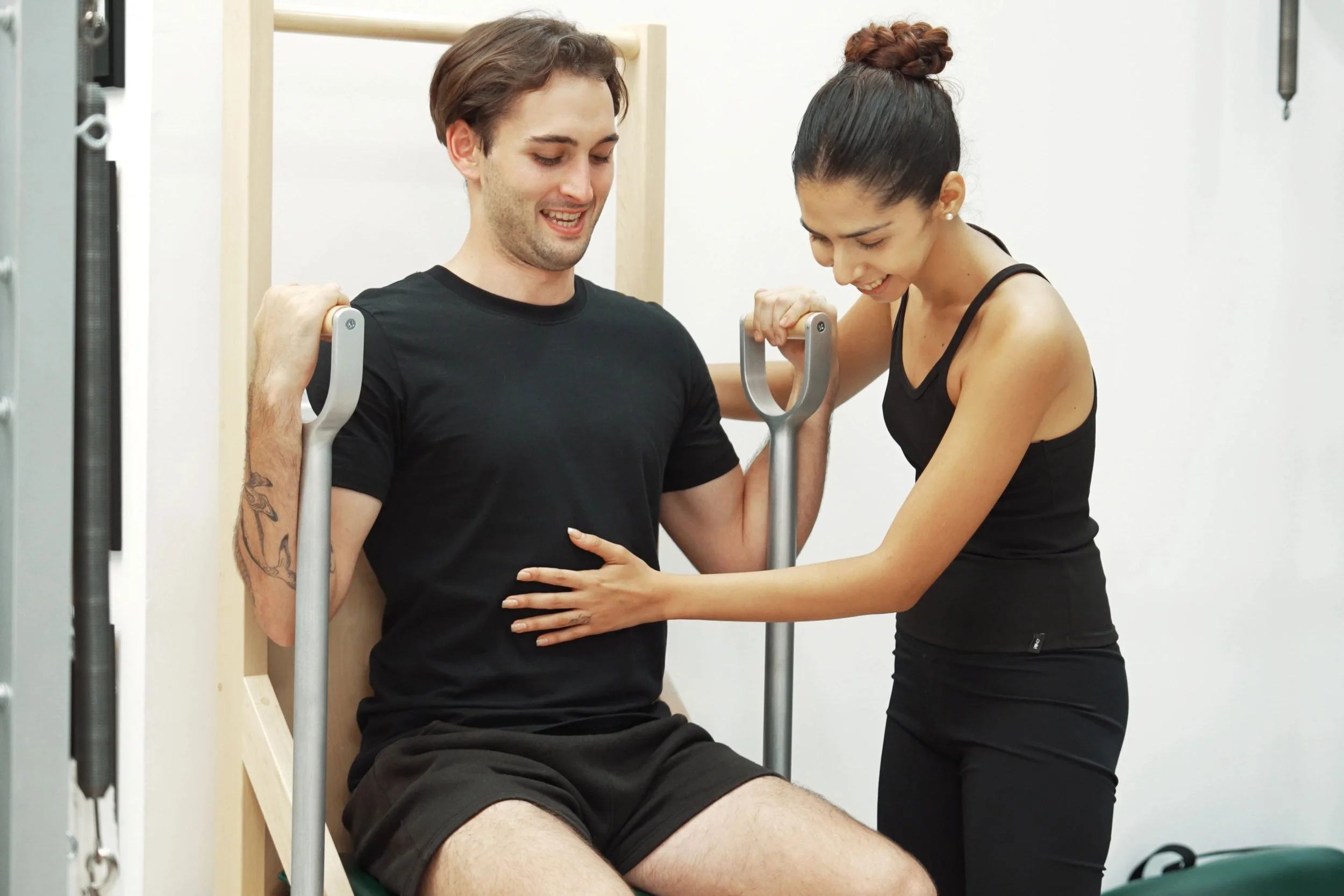
Jargon Busting the Term “Full-Stack Wellness” : Why It Matters for Pilates Studios
The concept of full-stack wellness is transforming the way Pilates studios operate, shifting from isolated classes to a holistic framework of integrated health. This approach combines movement training, recovery, nutrition, diagnostics, and lifestyle coaching into a coherent client journey. For studio owners and Pilates instructors, understanding full-stack wellness is essential to meeting modern consumer expectations, improving client retention, and creating sustainable growth in an increasingly competitive boutique fitness market.
By incorporating pillars such as personalised Pilates instruction, recovery therapies, nutritional support, specialist programmes, and community coaching, studios can differentiate themselves and deliver measurable results. This model not only strengthens client loyalty but also positions Pilates businesses as trusted wellness partners, capable of supporting long-term health and performance. As fitness evolves into a more integrated industry, embracing full-stack wellness strategies allows Pilates studios to stand out, diversify revenue, and future-proof their business.
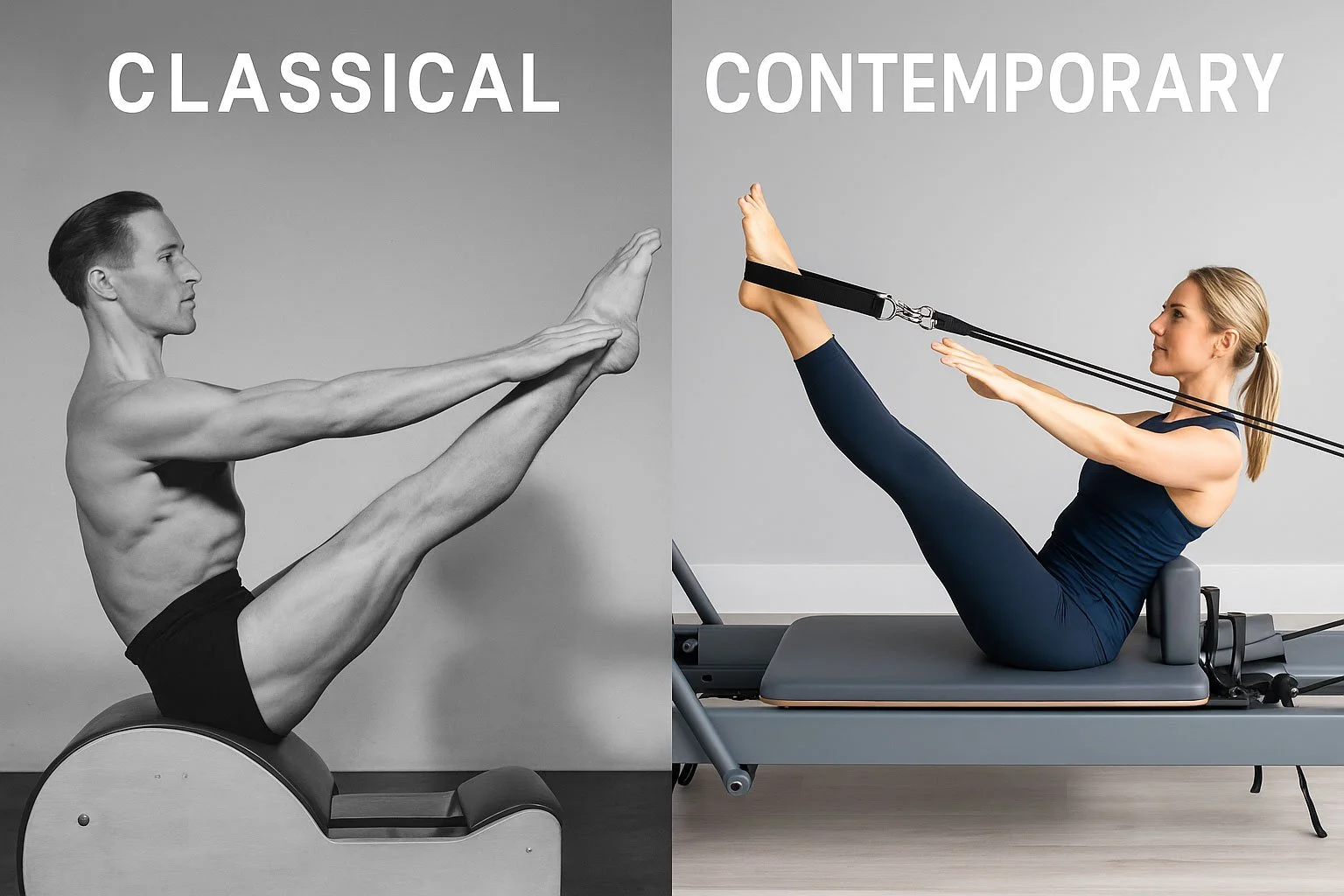
When Innovation Meets Heritage: The Pilates Brand Balancing Act
The Pilates industry in 2025 is defined by a tension between heritage and innovation. On one side are traditionalists who prioritise Joseph Pilates’ original designs and principles. On the other are brands innovating with biomechanics, hybrid fitness models, and new materials. Global leaders such as Balanced Body, Merrithew, and Align-Pilates illustrate this brand balancing act: heritage equipment, premium craftsmanship, and educational authority competing with agile innovation, best-value positioning, and contemporary accessibility.
The debate over Pilates equipment brands has never been sharper. Merrithew’s acquisition of Align-Pilates positions it against Balanced Body, while Align’s push into historical classical Pilates equipment challenges traditional dominance. The key question is whether dual-brand strategies can preserve Align’s reputation as a value innovator while modernising Merrithew’s premium appeal. For the Pilates industry, the outcome matters: the brands that succeed will balance credibility from heritage with bold innovation to meet the needs of today’s global market.
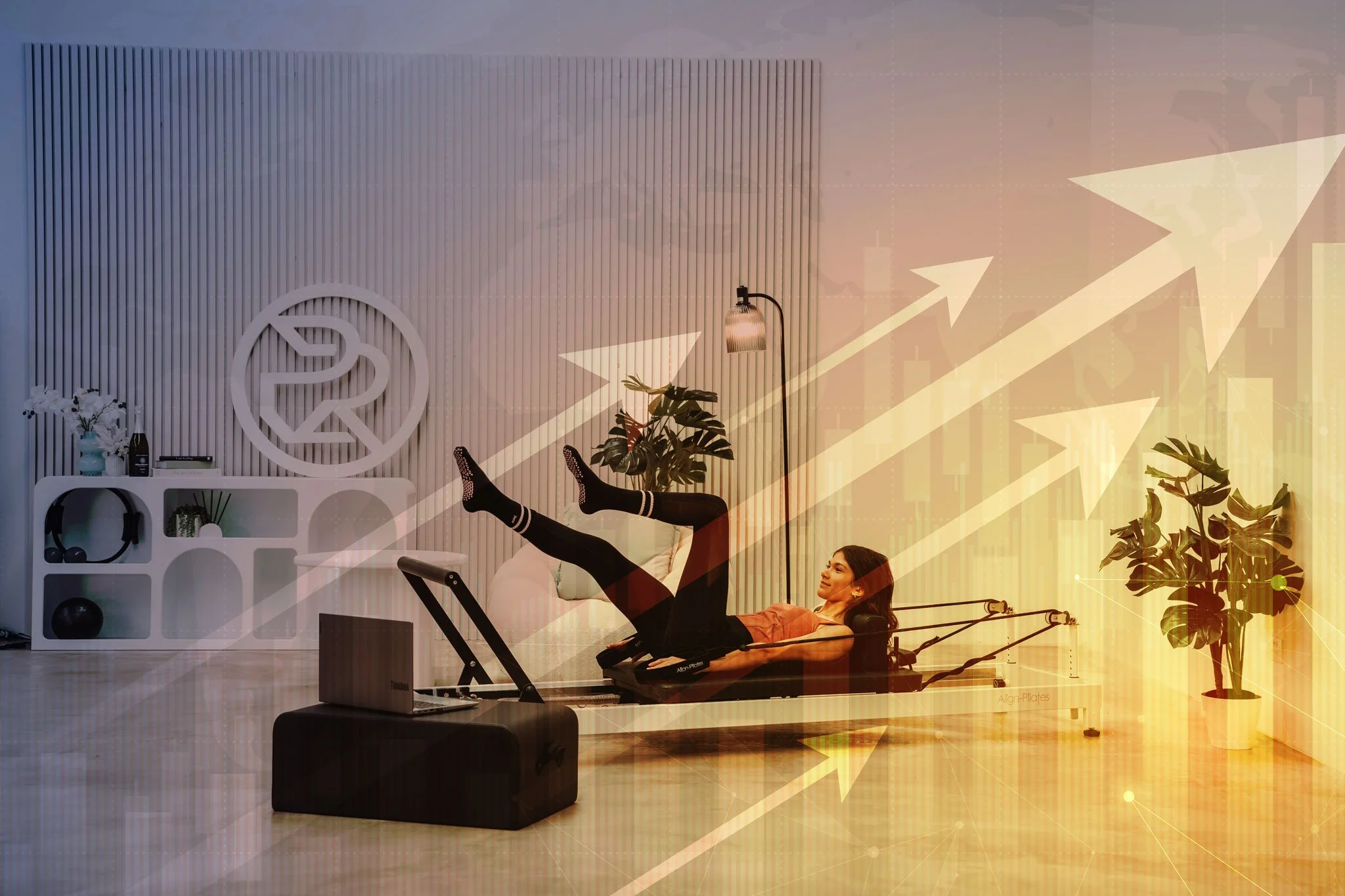
The Global State of Pilates in 2025: Growth Regions & Studio Trends
The Pilates industry in 2025 is experiencing rapid global expansion, with growth strongest in Europe, the Middle East, and Asia-Pacific. Countries like Germany, Italy, Bahrain, Australia, and Japan are seeing explosive demand for reformer equipment and boutique studio openings, while UK operators such as One Rebel and David Lloyd Leisure continue to integrate Pilates into the wider fitness ecosystem. This data confirms Pilates is no longer niche but a key player in mainstream fitness and wellness.
At the same time, Pilates studio models are evolving. Hybrid studios that combine Pilates with yoga, barre, or strength training are thriving, while instructor education is shifting towards career pathways rather than one-off courses. For training providers and brands, success in 2025 will depend on global adaptability, inventory readiness, and professionalising the role of instructors in the growing Pilates industry worldwide.
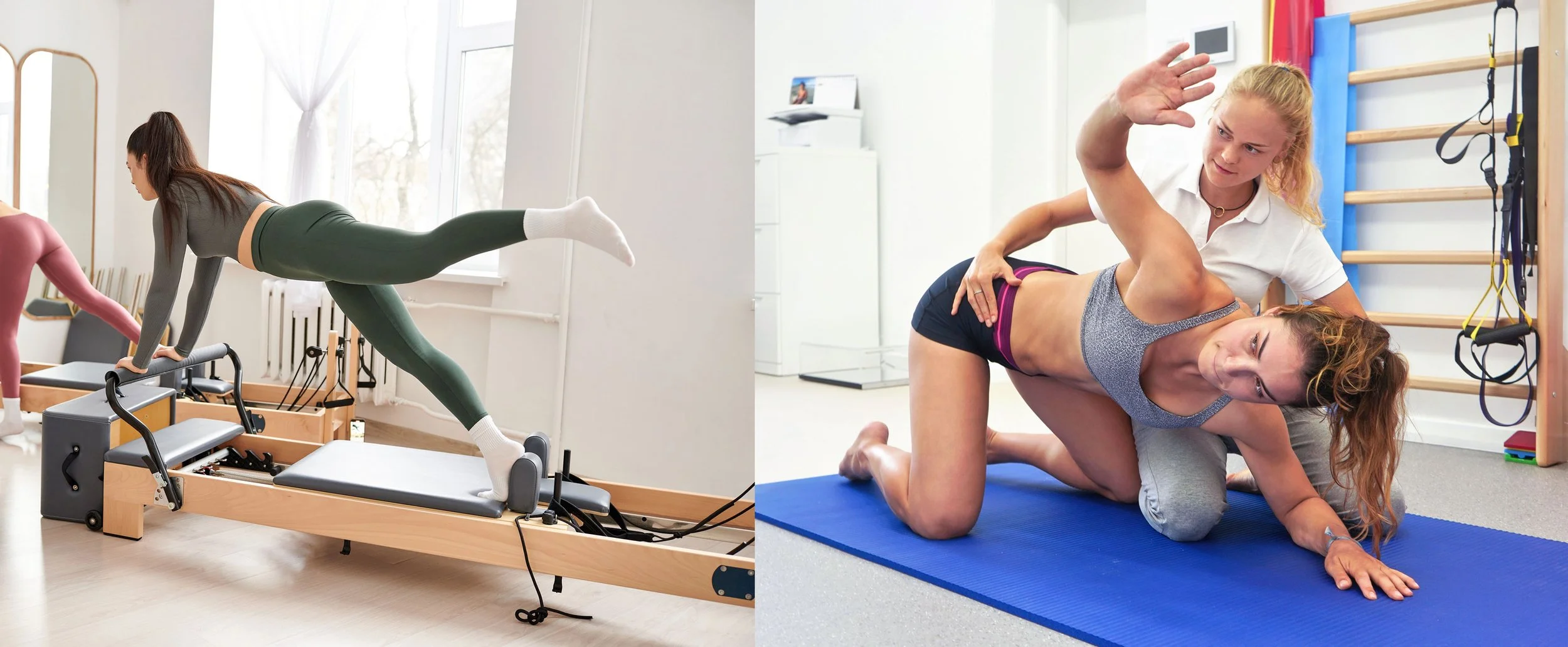
Fitness Pilates vs. Wellness Pilates: Why This Distinction Could Save the Industry’s Reputation
The distinction between Fitness Pilates and Wellness Pilates could be the key to protecting the industry’s long-term reputation. With consumer trust in the wellness sector declining due to health washing, overhyped claims, and influencer-driven fads, Pilates risks being seen as “just another fitness trend.” By clearly defining Fitness Pilates (focused on strength, stamina, and performance) versus Wellness Pilates (focused on recovery, mobility, and injury prevention), studios can improve clarity, credibility, and client outcomes.
Adopting this dual-category approach also strengthens Pilates consumer trust and positions providers as evidence-based professionals rather than marketing gimmicks. Instructors and studios can highlight qualifications, publish research, and align with physiotherapists or rehabilitation specialists to enhance Pilates brand credibility. This clarity allows Pilates to appeal both to fitness-focused clients and those seeking therapeutic movement, ensuring the method avoids wellness pitfalls and secures its place as a trusted, versatile practice

Snap Fitness Launches 24/7 Reformer Pilates with Your Reformer | A UK Fitness Gamechanger?
Snap Fitness Reformer Pilates UK marks a pivotal moment for the UK fitness sector. With the support of Your Reformer digital Pilates, Snap Fitness has launched an innovative 24/7 Pilates offering inside its 135+ gym locations across the UK and Ireland. The concept blends automated Reformer Pilates classes with instructor-led options, providing members with a hybrid fitness solution previously limited to boutique studios. As Pilates becomes more accessible through kiosks and digital content, the demand for expert oversight, personalised instruction, and safety assurance also increases—creating new opportunities for Pilates professionals.
For instructors, the rise of gym-based Reformer Pilates signals both a challenge and a chance. While digital tools offer convenience, they cannot replace the value of real-time correction and tailored progression. This expansion could ultimately grow the awareness and appreciation of Pilates across the UK. By embracing their role in education, consultancy, and hybrid Pilates instruction, professionals can ensure that Pilates retains its standards—even as it moves from studio to gym floor.
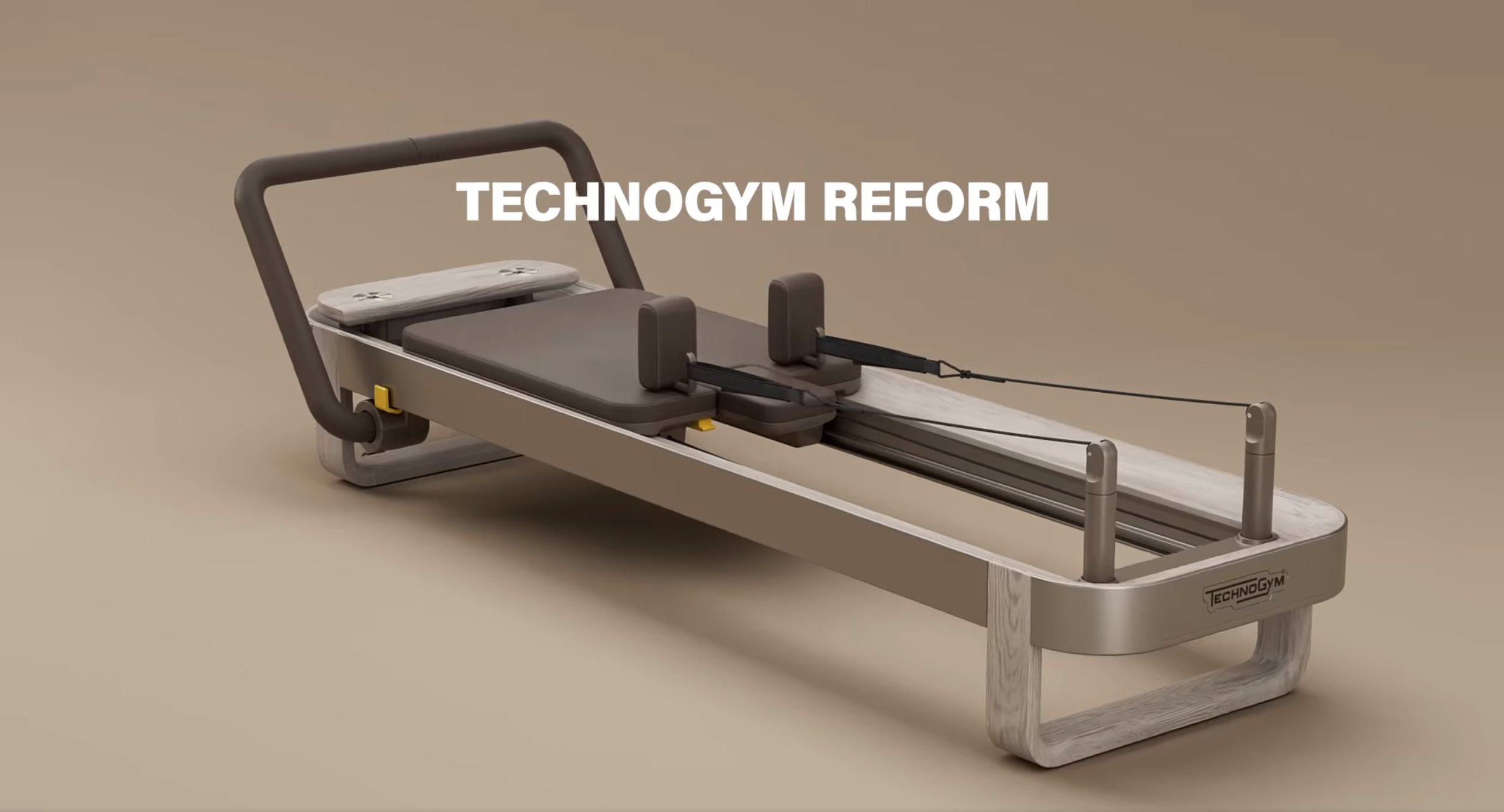
Technogym Reform Launch: Will It Disrupt the Pilates Reformer Market?
The launch of the Technogym Reform Pilates Reformer marks the company’s official entrance into the Pilates equipment market, raising significant interest among UK studios, gyms, and home fitness users. Designed with sleek aesthetics, quick-adjust features, and Pilates digital integration, the Technogym Reform is positioned as a luxury, connected apparatus appealing to wellness-focused hotels and home users alike. As Technogym enters the Pilates market, it brings global service networks and brand prestige, but faces the challenge of proving its Reform can match the durability and functionality of long-standing brands like Balanced Body, Merrithew, and Align-Pilates.
While the Technogym Reform may rapidly gain popularity in hotels and luxury settings, UK Pilates instructors are urged to remain cautious. The true test will be how the equipment performs in high-volume studios and whether it can support the demands of professional Pilates instruction. With the Pilates Reformer market growing rapidly, the need for qualified Pilates instructor support and intelligent, progressive teaching remains paramount. For now, Pilates equipment disruption will come not from design alone, but from how well new players like Technogym earn the trust of experienced professionals.
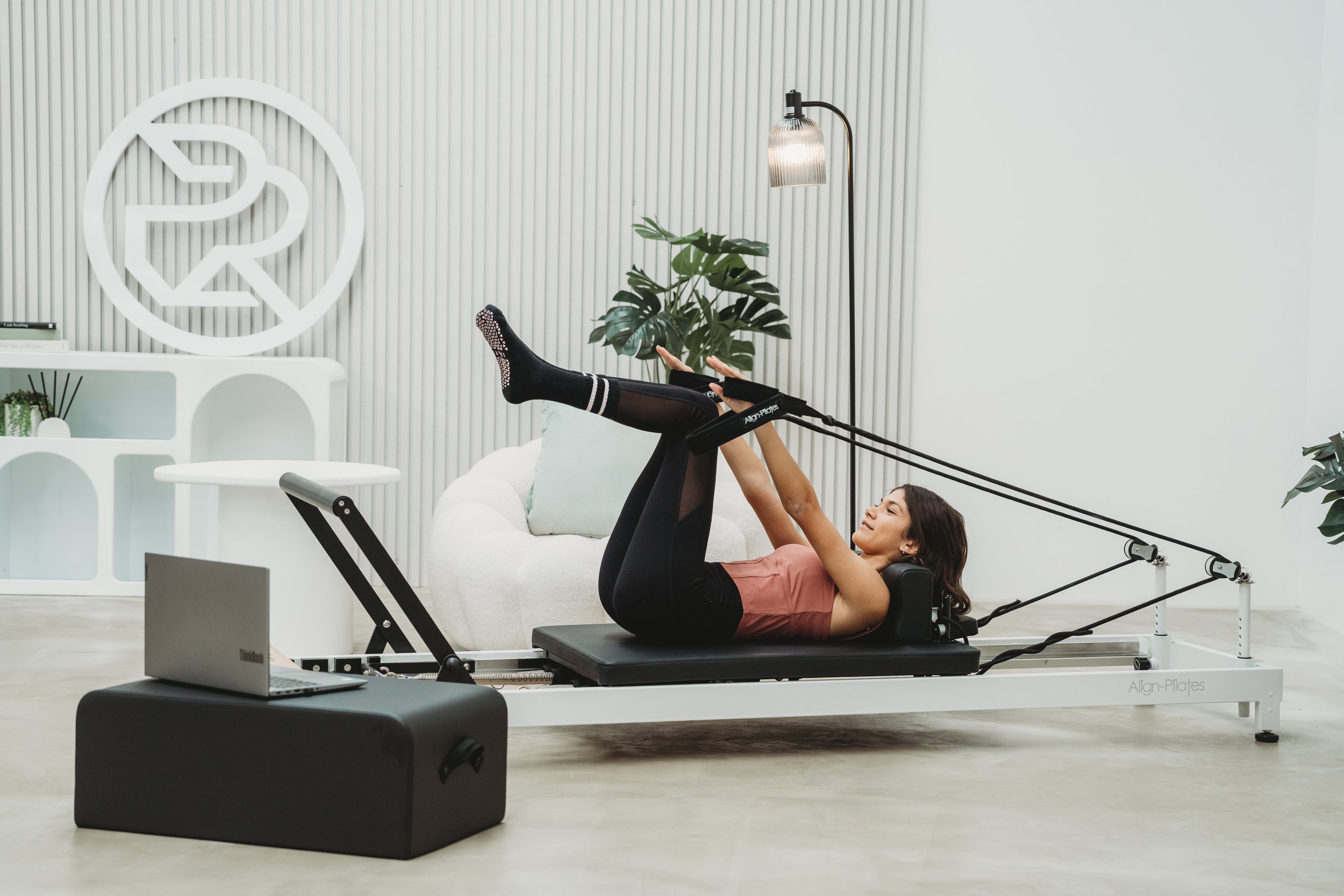
Pilates Reformer Market Set to Nearly Double in Value by 2035 : Key Insights for UK Instructors
The global Pilates Reformer market is experiencing exponential growth, with recent projections indicating it will nearly double in value from USD 7.6 billion in 2025 to USD 16.8 billion by 2035. This surge, driven by the home fitness boom, celebrity influence, and growing health awareness, signifies a major opportunity for instructors—especially in the UK. The demand for compact, foldable reformers and smart, tech-integrated equipment is rising fast, as more users seek digital access and at-home workout options. For UK Pilates instructors, this trend suggests the urgent need to embrace hybrid Pilates classes, combining in-studio expertise with online accessibility.
While the Pilates Reformers set to nearly double in global market value by 2035 is cause for optimism, it also brings challenges. Budget equipment, competing fitness fads, and underqualified instructors threaten the reputation of Pilates as a safe, intelligent discipline. UK instructors must focus on elevating their professional standards through credible CPD, health and safety training, and market awareness. Emphasising client education, prioritising apparatus safety, and capitalising on hybrid teaching models will be essential in remaining competitive while safeguarding the legacy of the Pilates method.

Pilates Apparatus is Not Dangerous – Poor Teaching Is
Pilates apparatus is not inherently dangerous—poor instruction and a lack of proper safety protocols are the real risks. Unlike gym equipment with powered resistance or heavy free weights, Pilates machines use springs to offer controlled, supportive resistance, making them safer when used correctly. However, incidents often arise from instructors who are undertrained, group classes with inappropriate exercises, and studios that fail to carry out thorough Pilates health and safety policies or risk assessments. The rise in injuries reflects commercialisation and entertainment-focused class models that prioritise adrenaline over alignment, control, and safety.
To protect clients and uphold the method Joseph Pilates intended, studio owners and instructors must invest in robust Pilates instructor training and studio-wide Pilates risk assessment practices. Tools like the Mbodies Studio Pilates Health & Safety CPD offer essential education, policy templates, and practical guidance to elevate standards. When instructors understand how and when to progress or regress exercises, implement spotting, and distinguish between group-appropriate and one-to-one movements, Reformer Pilates injury prevention becomes entirely achievable. Ultimately, with sound practices in place, Pilates apparatus safety can be upheld across every studio setting.
